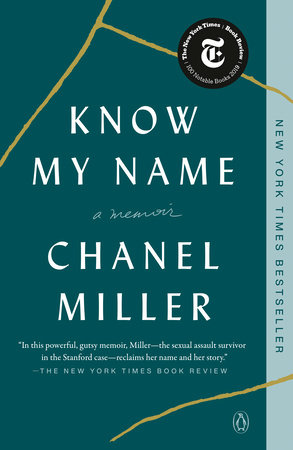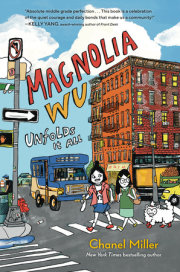I N T R O D U C T I O N
The fact that I spelled subpoena,
suhpeena, may suggest I am not qualified to tell this story. But all court transcripts are at the world’s disposal, all news articles online. This is not the ultimate truth, but it is mine, told to the best of my ability. If you want it through my eyes and ears, to know what it felt like inside my chest, what it’s like to hide in the bathroom during trial, this is what I provide. I give what I can, you take what you need.
In January 2015, I was twenty-two, living and working in my home- town of Palo Alto, California. I attended a party at Stanford. I was sexually assaulted outside on the ground. Two bystanders saw it, stopped him, saved me. My old life left me, and a new one began. I was given a new name to protect my identity: I became Emily Doe.
In this story, I will be calling the defense attorney,
the defense. The judge,
the judge. They are here to demonstrate the roles they played. This is not a personal indictment, not a clapback, a blacklist, a rehashing. I believe we are all multidimensional beings, and in court, it felt harmful being f lattened, characterized, mislabeled, and vilified, so I will not do the same to them. I will use Brock’s name, but the truth is he could be Brad or Brody or Benson, and it doesn’t matter. The point is not their individual significance, but their commonality, all the peo- ple enabling a broken system. This is an attempt to transform the hurt inside myself, to confront a past, and find a way to live with and incor- porate these memories. I want to leave them behind so I can move forward. In not naming them, I finally name myself.
My name is Chanel.
I am a victim, I have no qualms with this word, only with the idea that it is all that I am. However, I am not
Brock Turner’s victim. I am not his anything. I don’t belong to him. I am also half Chinese. My Chinese name is Zhang Xiao Xia, which translates to
Little Summer. I was named summer because:
I was born in June.
Xia is also China’s first dynasty. I am the first child.
“Xia” sounds like “sha.” Chanel.
The FBI defines rape as any kind of penetration. But in California, rape is narrowly defined as the act of sexual intercourse. For a long time I refrained from calling him a rapist, afraid of being corrected. Legal definitions are important. So is mine. He filled a cavity in my body with his hands. I believe he is not absolved of the title simply because he ran out of time.
The saddest things about these cases, beyond the crimes themselves, are the degrading things the victim begins to believe about her being. My hope is to undo these beliefs. I say
her, but whether you are a man, transgender, gender-nonconforming, however you choose to identify and exist in this world, if your life has been touched by sexual violence, I seek to protect you. And to the ones who lifted me, day by day, out of darkness, I hope to say thank you.
1.
I AM SHY. In elementary school for a play about a safari, everyone else was an animal. I was grass. I’ve never asked a question in a large lecture hall. You can find me hidden in the corner of any exercise class. I’ll apologize if you bump into me. I’ll accept every pamphlet you hand out on the street. I’ve always rolled my shopping cart back to its place of ori- gin. If there’s no more half-and-half on the counter at the coffee shop, I’ll drink my coffee black. If I sleep over, the blankets will look like they’ve never been touched.
I’ve never thrown my own birthday party. I’ll put on three sweaters before I ask you to turn on the heat. I’m okay with losing board games. I stuff my coins haphazardly into my purse to avoid holding up the checkout line. When I was little I wanted to grow up and become a mascot, so I’d have the freedom to dance without being seen.
I was the only elementary school student to be elected as a conflict manager two years in a row; my job was to wear a green vest every recess, patrolling the playground. If anyone had an unsolvable dispute, they’d find me and I’d teach them about I-Messages such as
I feel when you . Once a kindergartner approached me, said everyone got ten seconds on the tire swing, but when she swung, kids counted
one cat, two cat, three cat, and when the boys swung, they counted
one hippopotamus, two hippopotamus, longer turns. I declared from that day forward everyone would count
one tiger, two tiger. My whole life I’ve counted in tigers.
I introduce myself here, because in the story I’m about to tell, I begin with no name or identity. No character traits or behaviors assigned to me. I was found as a half-naked body, alone and unconscious. No wallet, no ID. Policemen were summoned, a Stanford dean was awakened to come see if he could recognize me, witnesses asked around; nobody knew who I belonged to, where I’d come from, who I was.
My memory tells me this: On Saturday, January 17, 2015, I was living at my parents’ house in Palo Alto. My younger sister, Tiffany, a junior at Cal Poly, had driven three hours up the coast for the long weekend. She usually spent her time at home with friends, but occasionally she’d give some of that time to me. In the late afternoon, the two of us picked up her friend Julia, a Stanford student, and drove to the Arastradero Preserve to watch the sun spill its yolk over the hills. The sky darkened, we stopped at a taqueria. We had a heated debate about where pigeons sleep, argued about whether more people fold toilet paper into squares (me) or simply crumple it (Tiffany). Tiffany and Julia mentioned a party they were going to that evening at Kappa Alpha on the Stanford campus. I paid little attention, ladling green salsa into a teeny plastic cup.
Later that night, my dad cooked broccoli and quinoa, and we reeled when he presented it as
qwee-noah.
It’s keen-wah, Dad, how do you not know that!! We ate on paper plates to avoid washing dishes. Two more of Tiffany’s friends, Colleen and Trea, arrived with a bottle of champagne. The plan was for the three of them to meet Julia at Stanford. They said,
You should come. I said,
Should I go, would it be funny if I went. I’d be the oldest one there. I rinsed in the shower, singing. Sifted through wads of socks looking for undies, found a worn polka-dotted triangle of fabric in the corner. I pulled on a tight, charcoal-gray dress. A heavy silver necklace with tiny red stones. An oatmeal cardigan with large brown buttons. I sat on my brown carpet, lacing up my coffee-colored combat boots, my hair still wet in a bun.
Our kitchen wallpaper is striped blue and yellow. An old clock and wooden cabinets line the walls, the doorframe marked with our heights over the years (a small shoe symbol drawn if we were measured while wearing them). Opening and closing cabinet doors, we found nothing but whiskey; in the refrigerator the only mixers were soy milk and lime juice. The only shot glasses we had were from family trips,
Las Vegas, Maui, back when Tiffany and I collected them as little cups for our stuffed animals. I drank the whiskey straight, unapologetically, freely, the same way you might say,
Sure I’ ll attend your cousin’s bar mitzvah, on the one condition that I’m hammered.
We asked our mom to take the four of us to Stanford, a seven-minute drive down Foothill Expressway. Stanford was my backyard, my community, a breeding ground for cheap tutors my parents hired over the years. I grew up on that campus, attended summer camps in tents on the lawns, snuck out of dining halls with chicken nuggets bulging from my pockets, had dinner with professors who were parents of good friends. My mom dropped us off near the Stanford bookstore, where on rainy days she had brought us for hot cocoa and madeleines.
We walked five minutes, descended the slope of pavement to a large house tucked beneath pine trees. A guy with tiny tally marks of hair on his upper lip let us in. I found a soda and juice dispenser in the fraternity kitchen, began slapping the buttons, concocting a nonalcoholic beverage I advertised as dingleberry juice.
Now serving le dinglebooboo drank for the lady! KA, KA all day. People started pouring in. The lights went off.
We stood behind a table by the front door like a welcoming committee, spread our arms and sang,
Welcome welcome welcome!!! I watched the way girls entered, heads tucked halfway into their shoulders, smiling timidly, scanning the room for a familiar face to latch on to. I knew that look because I’d felt it. In college, a fraternity was an exclusive kingdom, throbbing with noise and energy, where the young ones heiled and the large males ruled. After college, a fraternity was a sour, yeasty atmosphere, a scattering of f limsy cups, where you could hear the soles of your shoes unpeeling from sticky floors, and punch tasted like paint thinner, and curls of black hair were pasted to toilet rims. We discovered a plastic handle of vodka on the table. I cradled it like I’d discovered water in the desert. Bless me. I poured it into a cup and threw it back straight. Everyone was mashed up against each other on tables, swaying like little penguins. I stood alone on a chair, arms in the air, a drunk piece of seaweed, until my sister escorted me down. We went outside to pee in the bushes. Julia and I began freestyle rapping. I rapped about dry skin, got stuck when I couldn’t think of anything that rhymed with
Cetaphil.
The basement was full, people spilling out onto the orb of light on the concrete patio. We stood around a few short Caucasian guys who wore their caps backward, careful not to get their necks sunburned, indoors, at night. I sipped a lukewarm beer, said it tasted like pee, and handed it to my sister. I was bored, at ease, drunk, and extremely tired, less than ten minutes away from home. I had outgrown everything around me. And that is where my memory goes black, where the reel cuts off.
I, to this day, believe none of what I did that evening is important, a handful of disposable memories. But these events will be relentlessly raked over, again and again and again. What I did, what I said, will all be sliced, measured, calculated, presented to the public for evaluation. All because, somewhere at this party, is him.
Copyright © 2019 by Chanel Miller. All rights reserved. No part of this excerpt may be reproduced or reprinted without permission in writing from the publisher.






